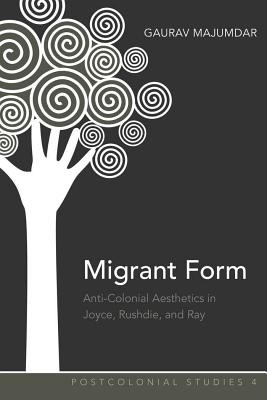
- We will send in 10–14 business days.
- Author: Gaurav Majumdar
- Publisher: Peter Lang Us
- ISBN-10: 1433105039
- ISBN-13: 9781433105036
- Format: 15.6 x 23.4 x 1.1 cm, kieti viršeliai
- Language: English
- SAVE -10% with code: EXTRA
Migrant Form; Anti-colonial Aesthetics in Joyce, Rushdie and Ray (e-book) (used book) | bookbook.eu
Reviews
Description
Migrant Form examines the works of James Joyce, Salman Rushdie, and Satyajit Ray for the anti-colonial arguments in their unsettled, and unsettling, aesthetics. Among the questions it engages are the following: What are the aesthetic moves through which art expresses its resistance to dominance and demands for conformity? How can we define anti-colonial aesthetics? How do these aesthetics manifest themselves in different media such as literature and film? Contending that Joyce inaugurates an anti-colonial aesthetics of reconstitution, the book mines such aesthetics in Ulysses and Finnegans Wake to propose a formal model for postcolonialism. It also draws on that exercise to consider how Rushdie extends a play with reconfigured forms into an overt politics in two of his novels (Midnight's Children and The Satanic Verses). Turning its attention to film, the book contests the common view of Ray as a gentle realist and examines a formal restlessness in Ray's earlier work, Charulata (The Lonely Wife), before demonstrating how Ray stages his preference for restlessness in his final film, Agantuk (The Stranger).EXTRA 10 % discount with code: EXTRA
The promotion ends in 22d.11:34:29
The discount code is valid when purchasing from 10 €. Discounts do not stack.
- Author: Gaurav Majumdar
- Publisher: Peter Lang Us
- ISBN-10: 1433105039
- ISBN-13: 9781433105036
- Format: 15.6 x 23.4 x 1.1 cm, kieti viršeliai
- Language: English English


Reviews